EU emphasizes significance of Syria peace talks in Astana
The European Union has emphasized the importance of the diplomatic process on the Syria crisis, which has seen three rounds of peace talks between Damascus and opposition groups in Kazakhstan under the auspices of Iran, Russia and Turkey so far this year.
“The talks undertaken in Astana by Russia, Turkey, and now Iran [are] important…[and] increasingly urgent,” the EU foreign policy chief Federica Mogherini said in Brussels on Wednesday at and EU-sponsored conference dubbed “Supporting the Future of Syria and the Region” underway in Brussels.
The Astana talks gather the Syrian government, on the one side, and the country’s political and armed opposition, on the other, at the negotiating table. Iran and Russia mediate the process on behalf of Damascus, while Turkey sides with the militants.
The United Nations has hailed the process for its contribution to a separate series of UN-led peace negotiations, which have been underway in Geneva in parallel with the Astana talks.
Read more:
The Astana talks got off the ground after the moderators successfully mediated an all-Syria ceasefire.

The Brussels event has been overshadowed by an explosion at a militant chemical depot munitions in the northeastern Syria Province of Idlib, which reportedly left over 70 people dead, including 20 children.
The Syrian army has roundly denied using “any chemical or toxic material” in the town, adding that it “has not used nor will use in any place or time, neither in past or in future.”
On Tuesday, Russia’s Defense Ministry said the Syrian army had stricken the arms depot used by militants to make and store away chemical munitions.
The ministry said that the toxic materials would be transported by the militants to Iraq upon production at the warehouse. It added that the same chemical munitions had already been used by militants in the northwestern Syrian city of Aleppo, where Russian military experts took samples in late 2016.
Mogherini added that the incident “makes it even more evident that the mechanism for implementation of ceasefire has to be a serious one.” “The ceasefire is a must,” she asserted.
Also addressing the Brussels event was UN chief Antonio Guterres, who said the incident “demonstrates unfortunately that war crimes are going on in Syria (and that) international humanitarian law is being violated frequently.”
Iran among top nuclear technology countries: AEOI chief
Democrats 'risk losing' election for backing Israeli war on Gaza, Lebanon: US journalist
Protesters remove busts of Israel's first president from Manchester Univ.
VIDEO | Hezbollah drones
US involvement in Israel’s 'regional war' unconstitutional, lawmakers tell Biden
107 years of Balfour Declaration that paved way for extermination of Palestinians
Hezbollah strikes Israeli military base near Tel Aviv
Palestinian media rights group condemns killing of two journalists by Israel


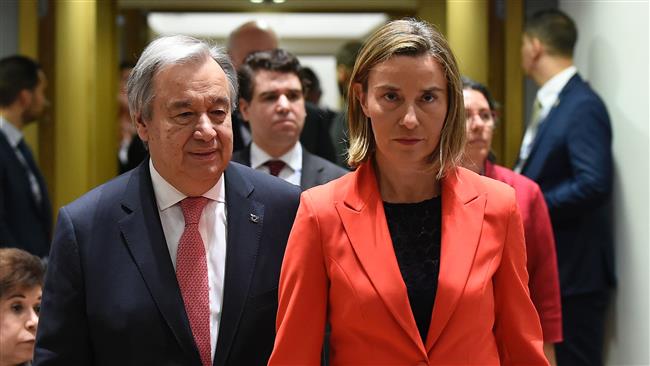
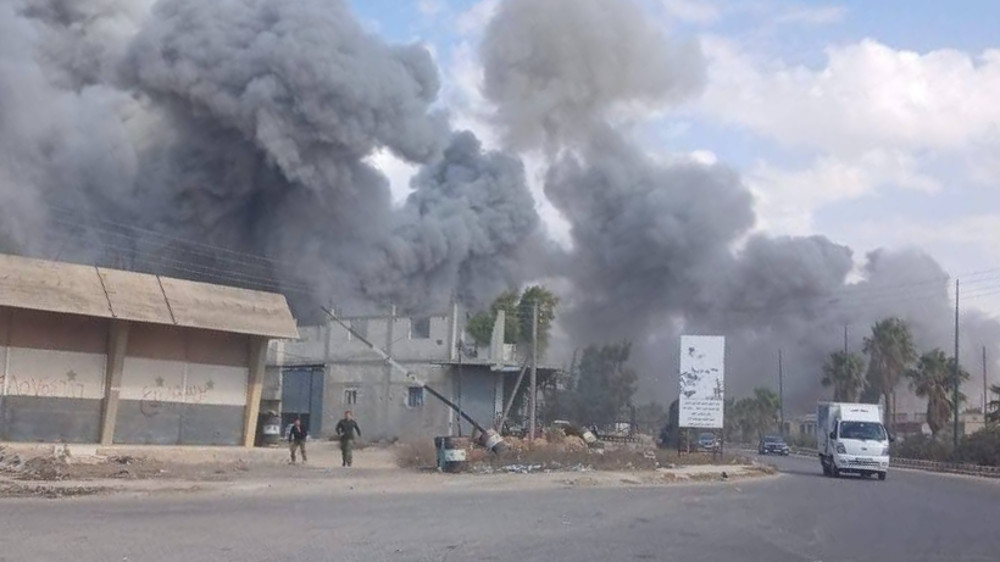
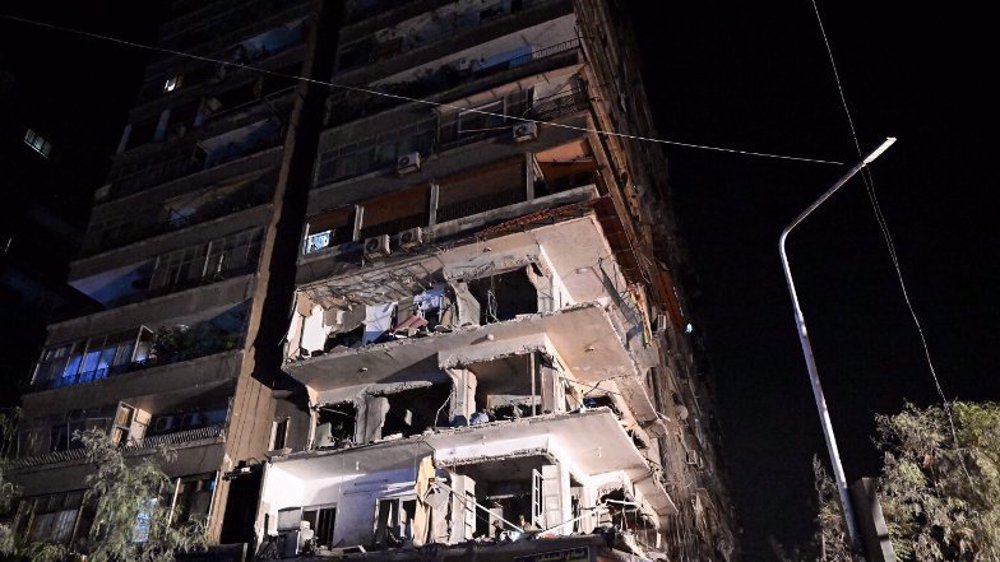
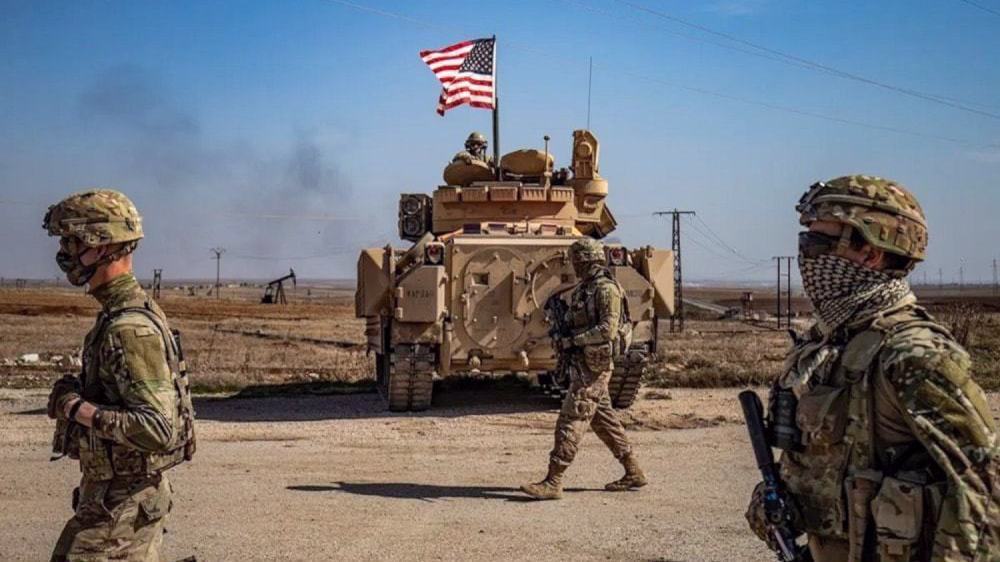



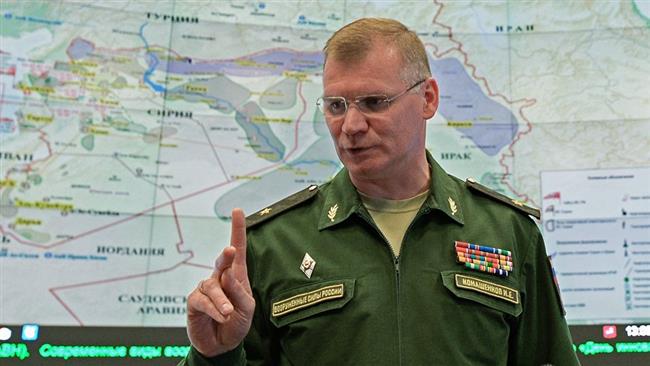
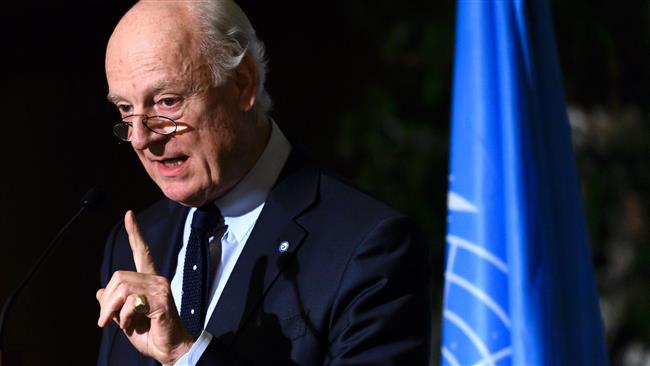


 This makes it easy to access the Press TV website
This makes it easy to access the Press TV website